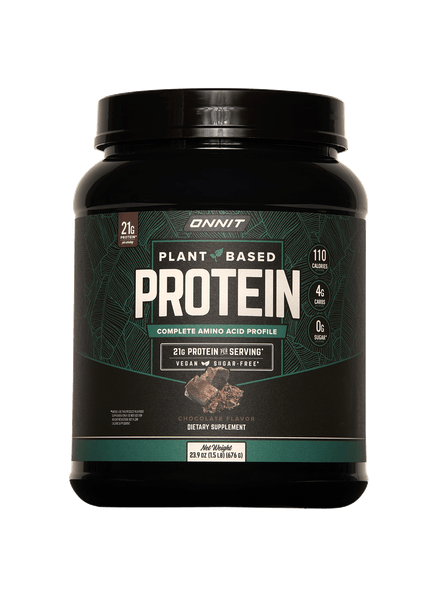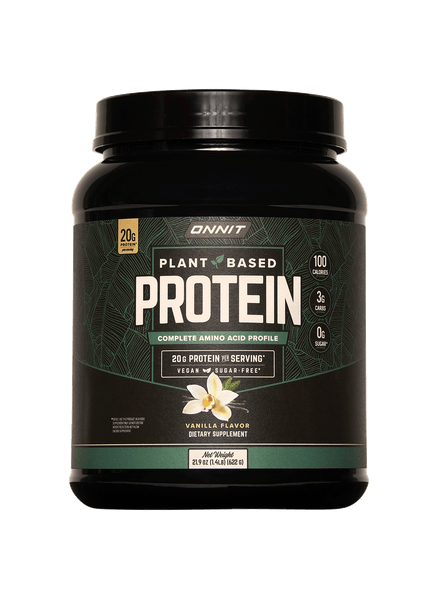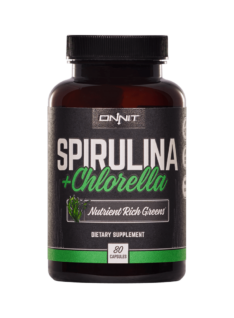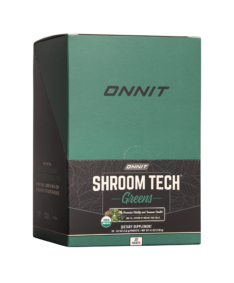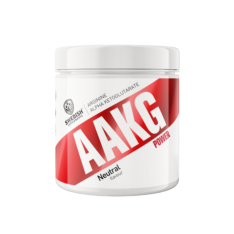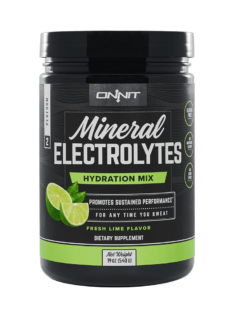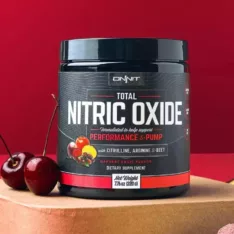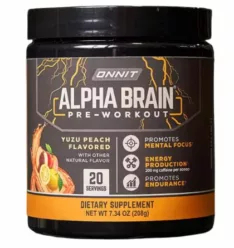Description
Usage of Plant Based Protein
Plant Based Protein works just as effectively as whey protein shakes and tastes incredible. Onnit’s sustainable protein powder mix has been developed to provide you with an alternative to whey protein powders which are rich in animal products and not suitable for vegetarian and vegan diets, however it doesn’t compromise on quality, protein content or flavour.
For the best protein shake, simply mix one scoop with at least 8 ounces of water or your favourite beverage. Be sure to consult your doctor before taking this or any other nutritional supplement if you are pregnant, nursing, have or suspect a medical condition or are taking any medications. Store in a cool, dry place.
Why Choose Plant Based Protein from Onnit?
Finding a high quality plant based alternative to whey protein can be tricky – they’re notoriously chalky and clumpy and don’t always taste good. That’s why Onnit have developed their own superb Plant Based protein which really smashes the preconceptions and provides a delicious, innovative protein powder mix suitable for vegan and vegetarian diets.
Plant Based Protein from Onnit has three unique features that contribute to its quality, consistency and taste. Firstly, there’s Onnit’s unique Smooth Protein™, a blend of seed proteins that makes for easy mixing eliminating lumps and chalkiness creating a smoother drink.
On top of this, Onnit has incorporated goFat™, an avançado powder that’s not only keto-friendly but also improves flavour and consistency as well as providing healthy fats. Plant Based Protein is also made with Luo Han Guo fruit extract (commonly known as monk fruit) which naturally adds sweetness without sugar or any artificial additives.
Plant Based Protein Benefits
Going green shouldn’t mean that you have to miss out on the best products – that’s why Plant Based Protein from Onnit is designed to give you muscle gains and support post-exercise recovery without incorporating any animal products making it compatible with vegan and vegetarian diets.
With alternative protein supplements, you often find that they skimp on protein content. That’s where Plant Based Protein is different – it provides you with a full, well-rounded protein blend with full spectrum amino acids that have been sustainably sourced from pea, pumpkin, sunflower and watermelon seeds.
Per serving, Plant Based Protein matches grass-fed whey protein products in every area so you don’t have to compromise on your diet or ethics to enjoy the full benefits of a sustainable, Earth-friendly and delicious protein drinks mix.
Common Questions :
What is the best source of plant protein?
The best source of plant protein can vary based on individual needs and preferences, but some common sources include peas, pumpkin seeds, sunflower seeds, watermelon seeds, soy, and quinoa.
What are 5 sources of plant protein?
Five common sources of plant protein include peas, pumpkin seeds, sunflower seeds, watermelon seeds, and soy. Other sources include almonds, chia seeds, lentils, beans, and quinoa.
What is plant-based proteins?
Plant-based proteins are proteins derived from plants, as opposed to animal-based proteins such as whey or casein. Plant-based proteins are often chosen for their sustainability, compatibility with vegan and vegetarian diets, and potential health benefits.
Is plant-based protein any good?
Plant-based protein can be a good alternative to animal-based proteins, especially for those following a vegan or vegetarian diet. It can provide the necessary amino acids and nutrients for muscle growth and recovery, although the quality and quantity of protein may vary between different plant-based protein sources.
What is vegan protein?
Vegan protein refers to protein that is derived from plant-based sources and does not contain any animal products. Vegan protein is suitable for those following a vegan or vegetarian diet and is often chosen for its sustainability and potential health benefits.
What is vegan protein made of?
Vegan protein is made from a variety of plant-based sources including peas, pumpkin seeds, sunflower seeds, watermelon seeds, soy, almonds, chia seeds, lentils, beans, and quinoa. The specific composition of vegan protein can vary based on the specific source used.

